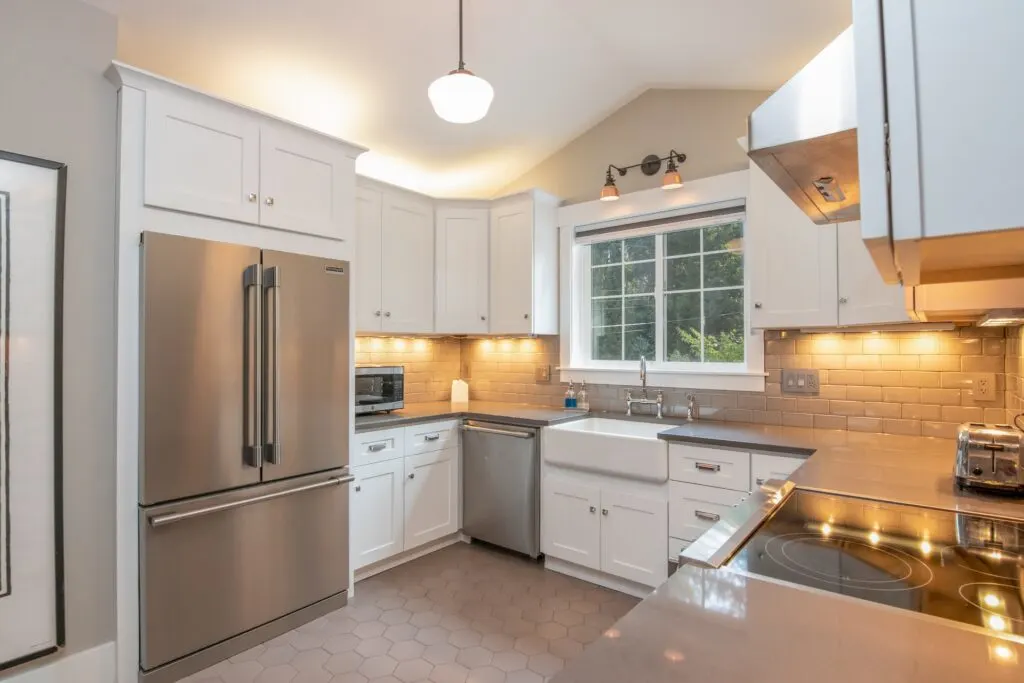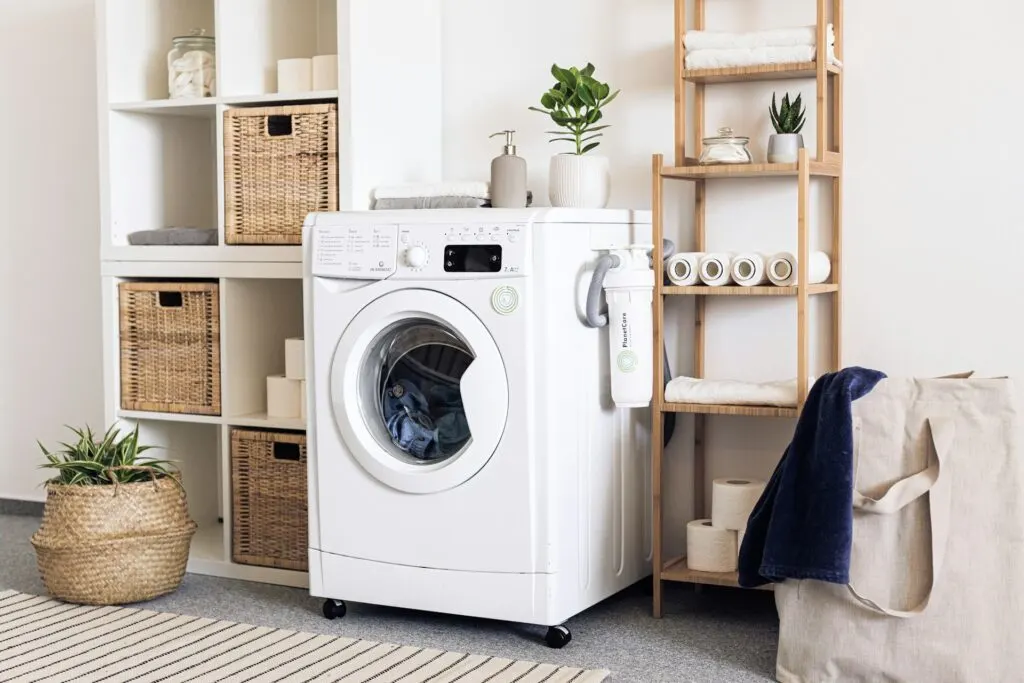When it comes to upgrading your home with new appliances, it’s easy to get caught up in the excitement of sleek designs and advanced features. However, making informed decisions is crucial to ensure your purchase meets your needs and fits seamlessly into your lifestyle. Here are essential factors you must consider before buying appliances to make the right choices for your home.

Healthier Living Environment
In addition to the practical considerations of budget, efficiency, and compatibility, the appliances you choose can significantly impact the overall health of your living environment. Opting for appliances with advanced features, such as air purifiers in refrigerators or filters in vacuum cleaners, can contribute to a healthier home.
A good vacuum effectively removes dust, contributing to a healthier living environment by minimizing airborne particles and allergens that can negatively impact respiratory health. These features help reduce allergens, pollutants, and airborne particles, promoting cleaner air and safer living space.
Brand Reputation and Reviews
Before committing to a purchase, research the reputation of the brand and read customer reviews. A reliable brand with positive feedback ensures the quality and durability of your chosen appliance. Online reviews provide real-world insights into the performance and potential issues of a product, aiding in your decision-making process.
Longevity and Consistency
A brand with a long history in the market often signifies reliability. Consider the longevity of the brand and its consistency in delivering quality products. Established brands are more likely to have refined their manufacturing processes, resulting in durable appliances.
Customer Support and Responsiveness
Excellent customer support is invaluable, especially when you encounter issues with your appliances. Research the brand’s customer service reputation, responsiveness, and ease of reaching them for assistance. A prompt and helpful customer support team can make a significant difference in resolving problems efficiently.
Innovation and Technology
Brands at the forefront of innovation and technology tend to produce appliances with advanced features and improved efficiency. Look for a brand that invests in research and development, providing you with cutting-edge solutions that align with modern lifestyle needs.
Sustainability Practices
As environmental consciousness grows, so does the importance of choosing brands that prioritize sustainability. Investigate the brand’s commitment to eco-friendly practices, such as using recycled materials, reducing energy consumption during manufacturing, and providing options for proper disposal or recycling of old appliances.
Budget Matters
Before diving into the world of appliances, establish a realistic budget. Understand your financial constraints and stick to them. Appliances come in a wide range of prices, and knowing your budget upfront helps narrow to down your options, preventing overspending and potential financial strain. If you’re in the Raleigh NC area, search for “appliance store Raleigh NC” to explore options that fit within your budget.
Energy Efficiency
Opting for energy-efficient appliances not only benefits the environment but also saves you money in the long run. Look for products with the Energy Star label, indicating they meet strict efficiency guidelines. Energy-efficient appliances consume less power, reducing utility bills and your carbon footprint.
Energy Star Certification
Look for appliances with the Energy Star label, as it signifies compliance with rigorous energy efficiency standards set by the Environmental Protection Agency (EPA). This certification ensures that your appliances not only perform optimally but also contribute to a reduction in energy consumption.
Annual Energy Consumption
Check the estimated annual energy consumption provided in the product specifications. This information gives you a clear understanding of how much energy the appliance is likely to use over a year, helping you assess its long-term impact on your utility bills.
Smart Technology Integration
Consider appliances that incorporate smart technology to optimize energy usage. Smart appliances can automatically adjust settings based on usage patterns and energy demand, resulting in more efficient operation. This not only saves energy but also provides a level of convenience in managing your home appliances.
Energy-Saving Modes and Features
Explore appliances that offer energy-saving modes or features. These options allow you to tailor the performance of the appliance to your specific needs, adjusting energy consumption based on the task at hand. For example, some refrigerators have vacation modes, and washing machines may have quick wash cycles that use less energy.
Size and Space Considerations
Imagine the disappointment of bringing home a new appliance, only to discover it doesn’t fit in the allocated space. Measure your available space accurately before shopping. Consider not only the dimensions of the appliance but also door openings and pathways to ensure a seamless fit.
Compatibility with Existing Infrastructure
When upgrading appliances, it’s crucial to ensure compatibility with your existing infrastructure. Check electrical requirements, plumbing connections, and ventilation systems. This step prevents additional costs for modifications or the need to return an appliance that doesn’t align with your home’s setup.
- Electrical Requirements: Verify that the electrical specifications of the new appliance align with your home’s electrical system. Check voltage, wattage, and plug types to avoid any surprises upon installation.
- Plumbing Connections: For appliances like dishwashers and washing machines, assess the plumbing requirements. Ensure that the water inlet and outlet connections match the existing plumbing in your home. This minimizes the need for costly modifications or additional plumbing work.
- Ventilation Needs: Appliances such as ovens, cooktops, and range hoods often require proper ventilation. Confirm that the new appliance’s ventilation system aligns with your kitchen’s setup. This consideration not only ensures efficient operation but also enhances safety.
- Space Constraints: Beyond the physical dimensions of the appliance, consider how it interacts with surrounding spaces. Check for adequate airflow around appliances that generate heat, such as refrigerators and ovens. This prevents overheating and ensures optimal performance.

Noise Levels
Appliance noise levels often go overlooked during the purchasing process. Consider the impact of noise on your daily life, especially for appliances like dishwashers, washing machines, and refrigerators. Read product reviews and look for decibel ratings to make an informed decision that aligns with your comfort preferences.
Warranty and Service
Appliances, like any technology, may encounter issues over time. Investigate the warranty offered by the manufacturer and the availability of service in your area. A comprehensive warranty and accessible service options provide peace of mind and protection for your investment.
As you embark on upgrading your home appliances, remember that informed decisions lead to long-term satisfaction. You’ll make choices that enhance your home’s functionality and efficiency by considering your budget, energy efficiency, space requirements, compatibility, noise levels, brand reputation, warranty, and future-proofing features. Take the time to research, measure, and evaluate before purchasing, and you’ll enjoy the benefits of well-chosen appliances for years to come.
